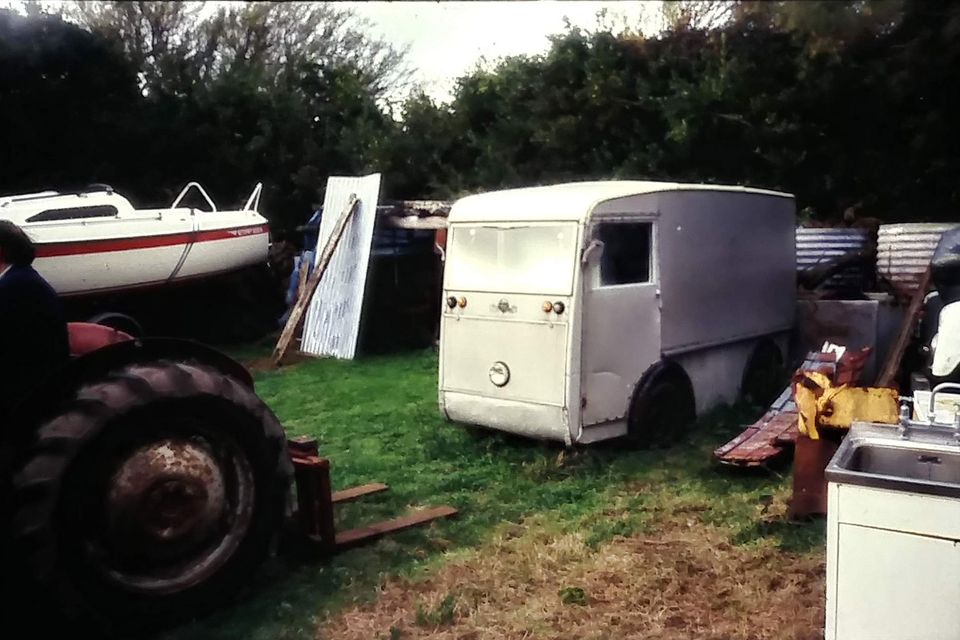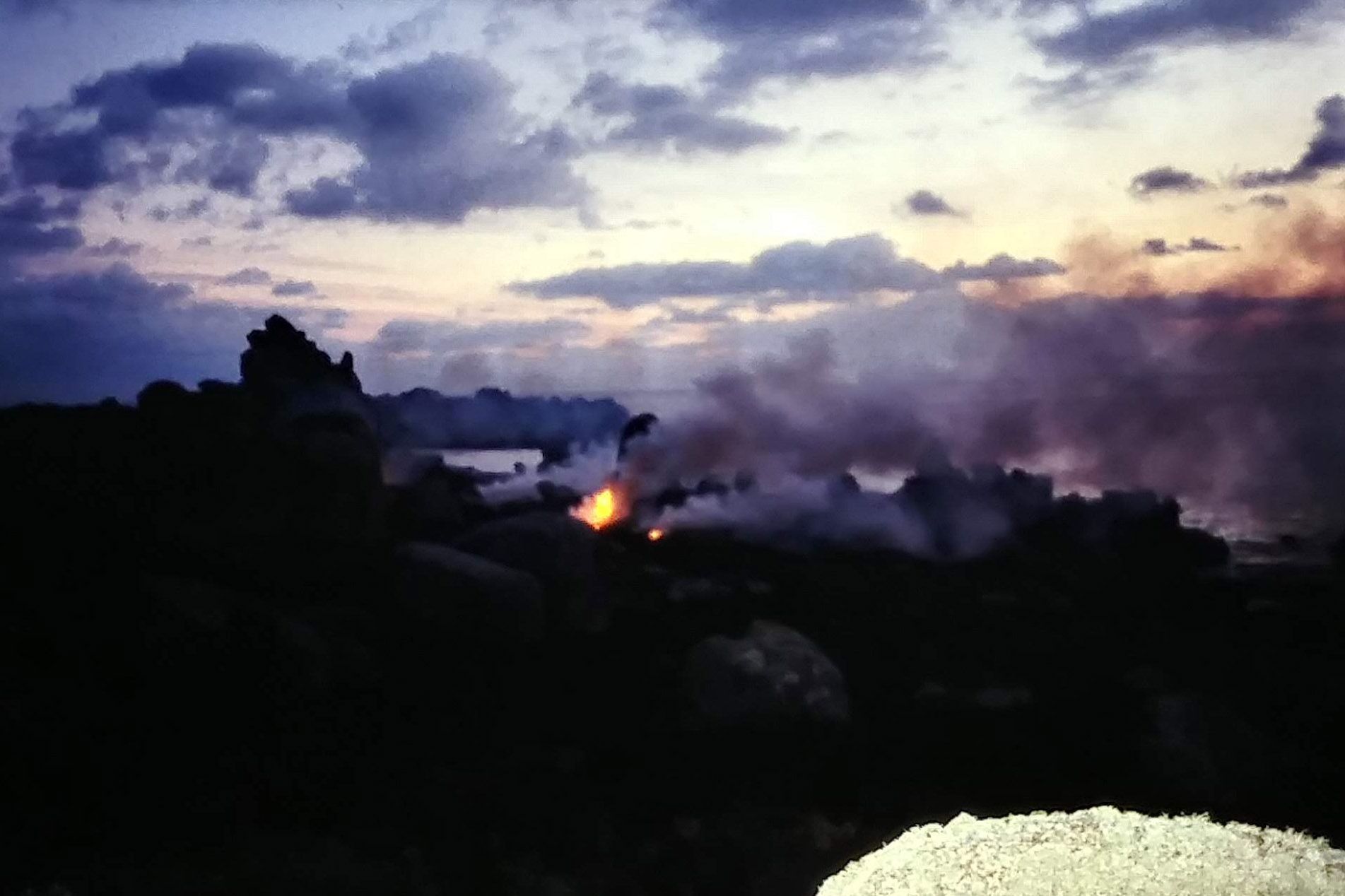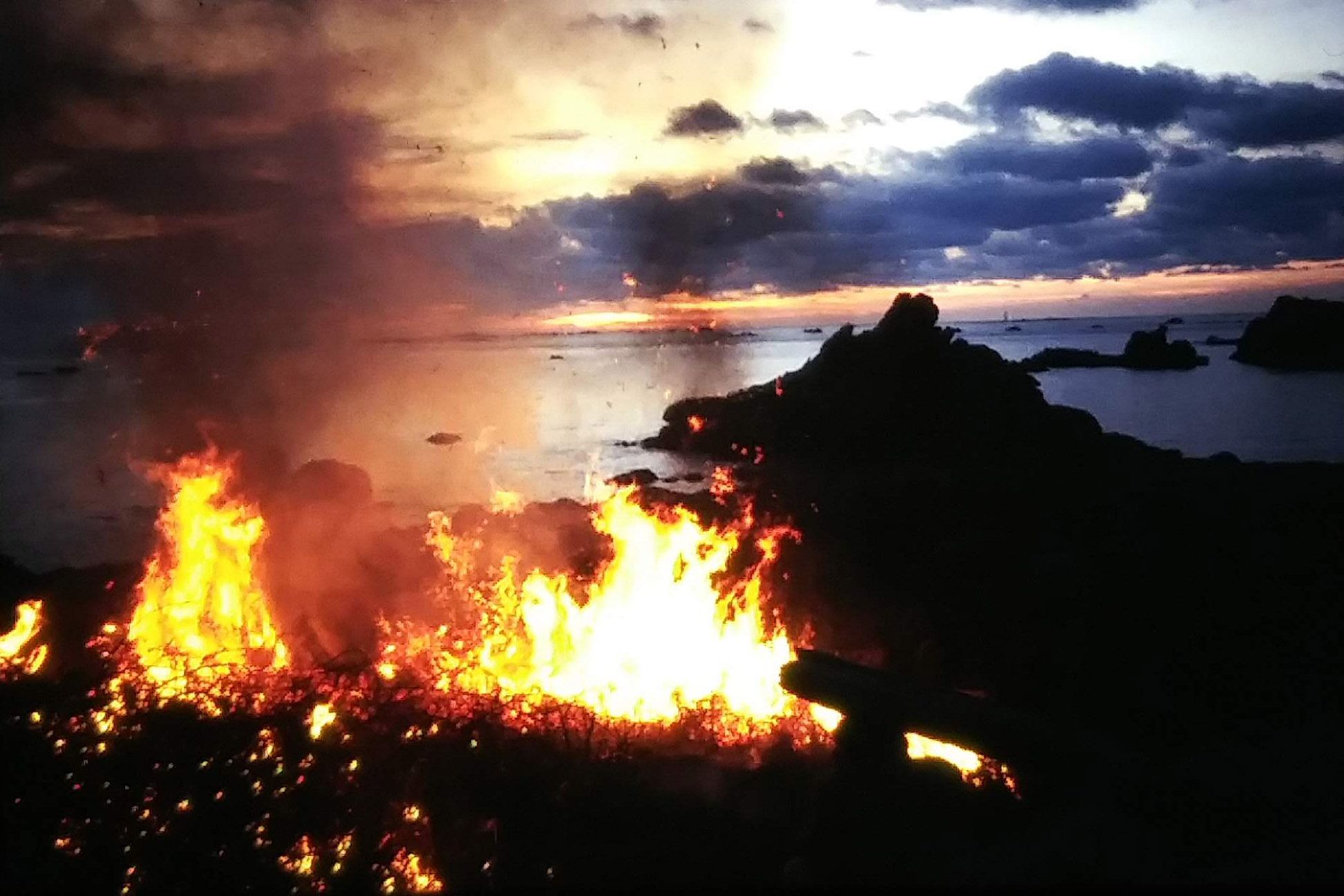#VanDeath

---12.09.1999---
It’s becoming clear to me that social life in this country revolves around drinking voluminous amounts of liquid, whether tea, beer, or gin & tonics depends only on the time of day. I’m not sure why this is, but whenever I’m feeling insecure I reach for a glass. It’s something to draw the focus for a moment, a lighting rod to diffuse nervous energy. I don’t mean to push the loose nuts of my character onto the English, but there’s an endearing idiom that may reveal more: “More tea Vicar?” It’s usually asked in the heightened, nervously polite tone of a mother whose daughter has just announced that “Everybody masturbates... It’s fun.” It breaks piqued silences and long awkward pauses to amusing effect. Throw in a “More tea Vicar,” and everyone laughs and tensions evaporate.
But who knows why untold gallons pass over English lips. It’s all speculation. The only thing that hasn’t yet evaporated here is the blood in my alcohol. Whoops, see there… I incriminate myself, but with the pub only open two nights a week, the drinks seem to flow faster. It’s this particularly English example of something akin to the Bernoulli Effect that is responsible for my hangover this morning.
------
It’s a little bit later in the afternoon now. My internal fog is lifting and visibility is improving. I’ll pick up where I left off the other day. Hans asked me, Bryce, and a couple of his friends, who are here from the mainland, if we would help move Jon’s boat, a fairly homemade but stout sailing dinghy about 18' long, from its grassy spot near Periglis to a field that looks like a mini junkyard, for the winter. This field is otherwise known as the “Resources Field.” Well put, I think.
The boat was stripped of its mast and rigging and awaited final storage. The first order of business, however, was to make a little more room in the field for the extra boat. To do that we had to move Ellen and Bryce’s old electric van into another corner. I had heard about this thing. The old electric van had a reputation that preceded it. They had brought it to the island out of a combination of practicality and ecological mindedness. With a total market of about two cars on the island, a major petrol station had yet to set up shop, so a non-polluting, electric vehicle made sense. The one they found had had a colorful past, delivering the medications at an English insane asylum. Apparently it had had enough of society's less stable yelling incoherent gibberish at it, so it answered an ad for a vehicle needed in the Scillys. Light baggage and freight hauling duty for two, young guesthouse owners. Short distances. Busy summers but free time in the off season. “Ideal really,” it must have thought, and Ellen and Bryce agreed.
It came over from the mainland and was charged up on St. Mary’s, only to lose its juice on the short hop aboard the local freight boat, the Lioness Lady, a somewhat familiar problem perhaps for the aging electric vehicle. So, after being helped onto the quay, it couldn’t really make it up the hill, and across the island. It had to make the trip, somewhat embarrassingly, at the end of a tow chain, behind a tractor. So, things got off to a lumpy start.
For one, its profusion of batteries added a heft that easily outclassed its motor, making hills a formidable challenge—even unladen. That heft, of course, created the opposite problem going down hill. The dicey brakes had to do all they could to keep the van from doing a drive-n-dive everytime it went down the quay. The quay, of course, is nothing more than a ramp straight into the sea, no matter what the tide. To add insult to injury, the floorboards soon vaporized in the salt air. The little van was starting to look like a classic problem vehicle. Eventually, it was declared unfit and left to seize up and rot in the resources field. That’s when I first saw it.
It was too bad, really. One could immediately see that it had been a good little van. It looked efficient, tidy, and smart in a way that belied its age, in a way that made it seem almost unconsciously hip. On the drawing boards, it was given the shape of a disproportionately tall breadbox: flat sides, roof slightly sloping towards a flat narrow windshield, tall doors, a short wheelbase and a single headlight. It was a slightly-rough-around-the-edges, little public servant who had toiled a number of years and just wasn’t up to working through retirement.
We tried to coax him out of his spot, the four of us pushing hard, but he wouldn’t budge. I looked inside. Advanced rusting, arthritic axles, he was in a sorry state. Hans backed in with the tractor, made a wary-looking rope fast to the van’s frame, jumped back onto the tractor, and gave it some welly, as they say around here. Which is to say, he put his foot into the throttle. The rope went into shock, screaming and groaning. “Gaaa... Gaaauuuugh!! Oooohhh my Gaaauuu-oooouuuch!!” I thought it was going to snap right there—I really did. The rope hung on though, the little trooper, and we extracted the van. It resisted all the way. “Are all of the wheels turning?” Hans asked over his shoulder. With enormous amounts of additional effort and spinning tractor tires we eventually moved the, what I now viewed as a cantankerous old van, to its new spot in the field. Jon’s boat was still sitting next to the road at Periglis.
If it was that much effort to move something that had wheels only sixty feet, I shuddered to think what was going to be involved in moving a boat with a metal keel, two stabilizing fins and no trailer 50 yards down the road, and around a few corners and hedges.
Well, it turned out not to be so bad. Not to sound like an ad for physics, but man, that stuff really works. A few old beams and scraps of wood and we were lifting and heaving the boat into position. Hans chastised me at first for my rusty knowledge of how to actually apply the concepts but the whole lever/fulcrum thing came back to me fairly quickly. We levered; we fulcrummed; and we had the boat on the road in short order. A plank of wood was slid under the keel as a skid. The skid was roped to the tractor. And away we went.
Our job was to stand on either side of the boat and keep it level as it made its journey. Let me just add here that Massey-Ferguson makes a great tractor. They exist on the island in a variety of ages, conditions, and stages of homespun restyling. If you need to tow a trailerless boat, pull a dead Land Rover out of a ditch, or plow a field, St. Agnes recommends them unanimously. I was just glad we didn’t have to pull that boat ourselves. We creaked around a few hedges, tore up some grass and slid the thing into the field. A few more well placed lever-pulls and she was into position next to the old van. With that, we all clapped each other on the back and headed back up the road.
------

A couple of weekends ago Andrew Fishman was over from St. Mary’s, staying with Ellen and Bryce. He and I were about to go for a walk in the afternoon when we noticed, apart from a stunning sunset in progress over the Western Rocks, huge amounts of smoke and a fire blazing on the other side of the island on Wingletang Down. We gathered cameras and gloves, went over to see what was going on, and possibly lend a hand. When we got there we saw that Jory, Morgan, and Trevor (James and Sarah Ross’s kids from Trevellan Farm) had set the Down on fire and the bracken was burning like mad. It wasn’t an accident, nor was it mischievous pyromania (like when I was a kid). No, they were just maintaining the land.
Apparently the bracken and gorse are real fire hazards in the summer, so in winter, when the soil is wet and the wind is right they set it all alight and by next spring the charred patches are sprouting again. Jory, the oldest at 19 or 20 I’d guess, kept an eye on things. Morgan, about 14, did most of the work carrying branches of flaming gorse from one spot to the next. Trevor, around 11, played around trying to get little bits to burn here and there. I really admired the amount of responsibility James had entrusted his kids with. He basically said, “Go set a part of the island on fire. I know you can do it right.” What a better way to teach kids responsibility than to frame it around something they like to do, like burning stuff.

Apart from seeing the boys take on the task, it was amazing to see the fields in flames against that evening’s thinning sky. This island so easily changes character, transforming itself into a more potent form, shaman-like. I had seen it many nights before and here was a new incarnation. Before me the land shifted and swirled. Witches danced and spun, heads drawn back, mouths open, necks exposed and undulating wildly. They drove themselves into a fevered frenzy leaping over this, engulfing that, ushering up huge amounts of smoke and the glowing shells of former plants. They flushed out fairies, sprites and nymphs, herding them all skyward and marched them out over the sea.
You may guess that no one else noticed this. People came and went: mothers, kids. Dinners were ready and were waiting. It got late. The sky went out. The fire lost interest. The spirits drifted off. Andrew left. Phillip came and went. Even the cows got bored and went home. And I eventually wandered back myself.






Member discussion